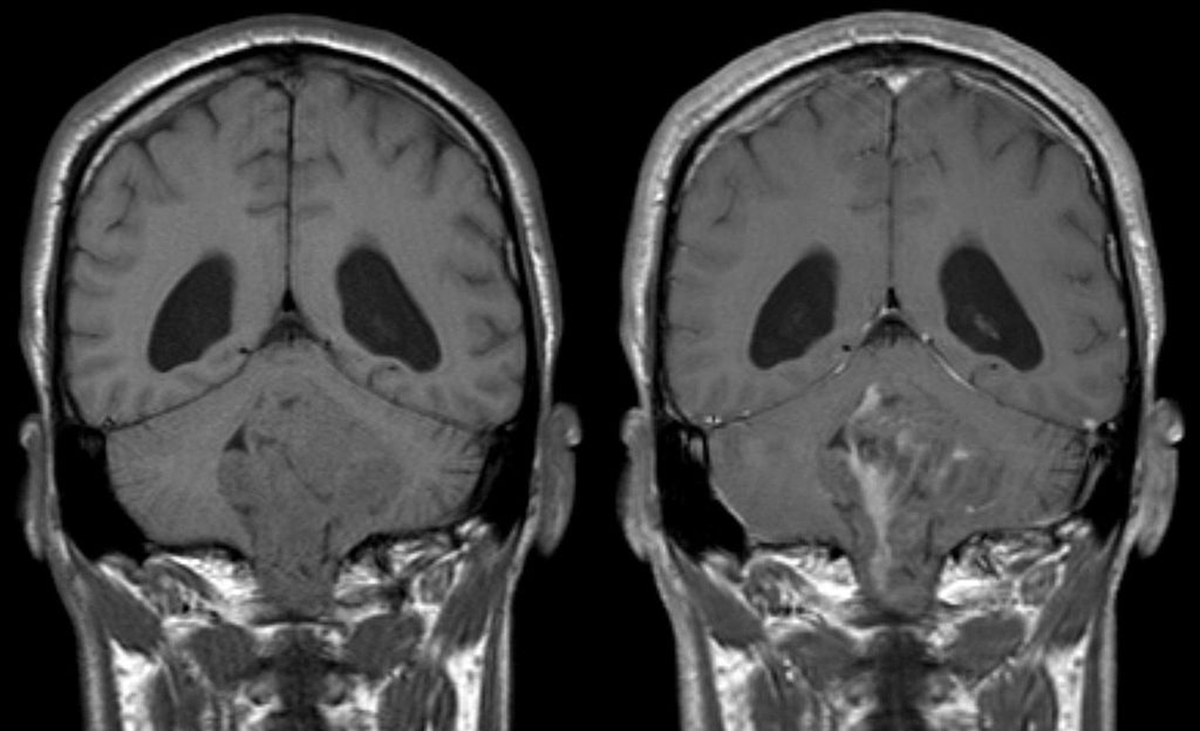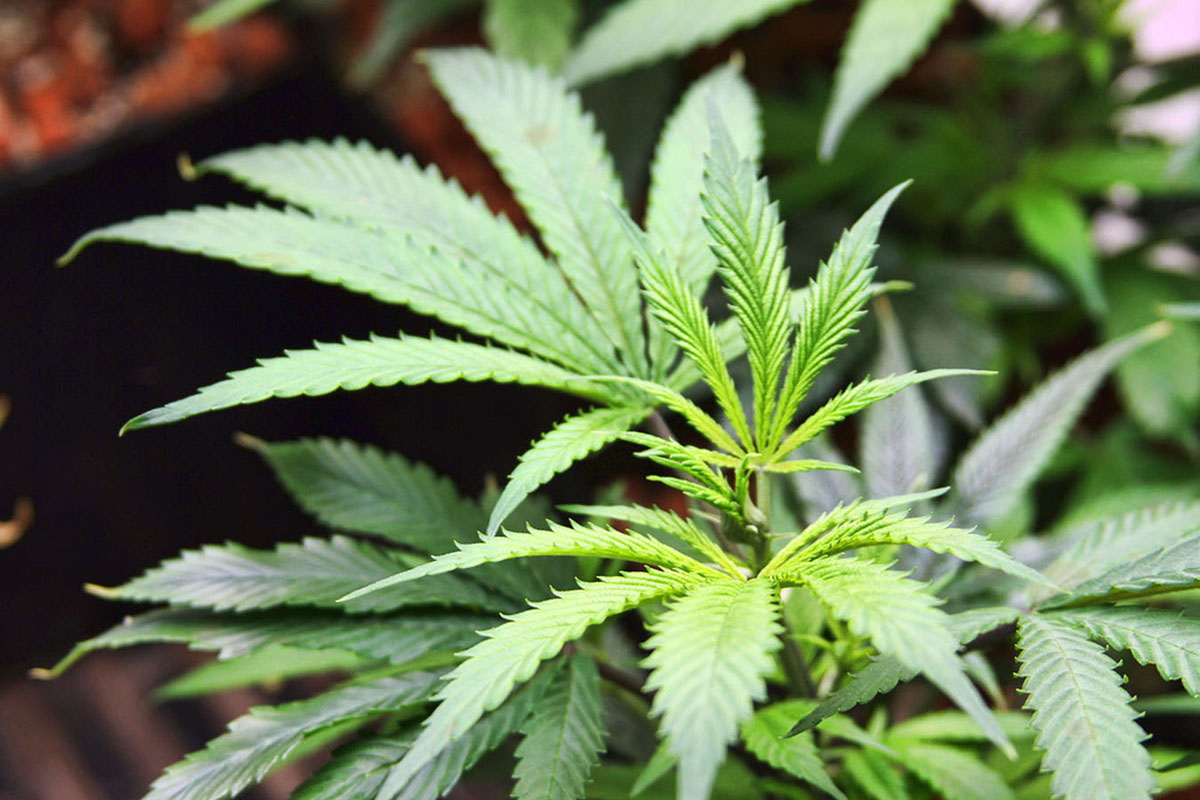Although this topic was chosen several days ago, I'm writing this article, ironically, just a few hours after I found out I will have to have surgery for a possible tumor in my brain, and I will have to have the surgery as soon as the operating theater it can be scheduled. I had an interest in the subject of brain tumors as a science reporter before this, but now I feel the need to become a lay expert really fast.

So here's a report on what I, and maybe you, can really expect marijuana to do for a brain tumor, written from the point of view of someone who has access to the very best of modern medicine, and no particular interest in marijuana, pro or con. I'll take you through the questions for which I've had to get answers myself.
Q. How can you know whether you might have a brain tumor?
A. You can't really diagnose a brain tumor--cancerous or benign--on your own. But you can recognize certain situations in which it's urgen to get a doctor's advice. See a physician if you experience:
- Headaches that don't seem to be migraines or cluster headaches or related to tension, infections, or injury, especially if they just won't go away.
- Changes in vision, especially if they are in only one eye.
- Nausea and/or vomiting, that may or may not occur at mealtime.
- Muscle twitches, especially if it's a muscle movement you can't consciously imitate, seizures, or convulsions.
- Numbness in arms or legs.
- Odd sensations, or hallucinations. A hallucination doesn't mean you are crazy, just that you are seeing, hearing, smelling, tasting, or feeling something that objectively is not there.
- Changes in mood or personality that you cannot otherwise explain.
- Problems with memory.
Many conditions other than brain tumors can cause these symptoms, but they are a sign that another condition needs to be diagnosed to explain them or a brain tumor ruled out by non-invasive brain scans, such as MRI (magnetic resonance imaging) or CT (computed tomography). It can be uncomfortable and just a little scary to spend 20 to 40 minutes in the machines that take these scans, but they do not hurt. Even after you have these scans, the doctor may have to do angiography, sending an extremely tiny camera into your brain, to make sure what is seen is a tumor of some kind.
Q. Are brain tumors always fatal?
A. No. Not all brain tumors are cancerous, and as long as the tumor stays small and does not put pressure on the rest of the brain, some non-cancerous tumors might not even need treatment. Cancerous tumors of the brain, however, always require treatment, because they distort other tissues also trapped inside the skull.
Read More: Brain Cancer - Treatment Alternatives
Q. But marijuana treats brain cancer, right?
A. First of all, it is important to understand that there are at least 120 different kinds of brain cancer. What treats one kind of brain cancer may or may not treat another. Researchers are looking at--and getting positive preliminary results for--marijuana as a treatment of a particularly deadly kind of cancer known as a glioma. These tests don't establish that marijuana will treat other forms of brain cancer, or that it won't.
If You Had Brain Cancer, Would You Smoke Pot to Cure It?
Q. Why are scientists just looking at the use of marijuana to treat, primarily, one form of brain cancer?
They have to start somewhere. People who have gliomas have the least to lose by experimental treatment, and the most to gain.

Q. How does marijuana fight cancer?
Marijuana cannabinoids, which include but are not limited to the chemicals that give you a marijuana high, keep glioma tumors from manufacturing the enzymes called metalloproteinases that allow cells in the tumor to "peel off" and enter the brain's bloodstream, metastitizing (spreading) to adjacent parts of the brain. Most of the recent research focuses on a chemical called cannabidiol, or CBD.
CBD doesn't give you a high, but it does force glioma cells to change their metabolism so that they burn oxygen. When tumors have to shift into high oxygen use, they don't rob the rest of the brain of the glucose it needs to operate. (The brain uses up to 20% of the entire body's supply of glucose.) When cells locked inside a tumor are exposed to CBD and can't get the oxygen they need, they go into a process called apoptosis, in which they die without multiplying. CBD also blocks a process in which tumors release inflammatory enzymes to break down tissue around them so they can send cells into the bloodstream, and activates the immune system inside the brain.
Q. So using marijuana to fight cancer isn't about getting high?
No. That some people may manage to get CBD into their bodies in large enough amounts possibly to fight brain tumors by smoking pot is coincidental. Researchers are looking at developing CBD as a drug. Pharmaceutical companies will make greater profits if they do, of coruse, but it's not just about the profits. It's also about concentrating the chemical that has the greatest effect on this one kind of brain cancer.
Q. Has marijuana been scientifically tested on people who have brain cancer?
The first human trials were only being set up in November 2013. It will be at least a few months before there are even preliminary results. The test is being run by GW Pharmaceuticals, and will involve just 20 people. But it's a start. However, about 22,000 people a year are diagnosed with glioma, and most live less than one year.
Q. But shouldn't everyone who has a brain tumor use marijuana?
I'll answer this question for myself. My doctor believes I have a brain tumor, but not brain cancer (and we won't be sure about whether it's even a tumor until after surgery a few days from now). If I had a glioma, yes, I probably would try either to get CBD or to smoke pot. But since I don't, I'm not. I don't have any interest in discouraging people from any lawful treatment they believe may help, but there just isn't a lot of credible evidence on this.
Read More: Therapeutic Uses Of Medical Marijuana
Q. But dude, haven't you heard about marijuana oil?
Yes. I have. And maybe it works. I certainly don't know, and no researcher knows, that it doesn't. But it doesn't make sense to me to forego medical treatments that work--and many brain tumors are very survivable with medical treatment--for a natural cure that may or may not. At least not yet.
- Solinas M, Massi P, Cinquina V, Valenti M, Bolognini D, Gariboldi M, Monti E, Rubino T, Parolaro D. Cannabidiol, a Non-Psychoactive Cannabinoid Compound, Inhibits Proliferation and Invasion in U87-MG and T98G Glioma Cells through a Multitarget Effect. PLoS One. 2013 Oct 21. 8(10):e76918. doi: 10.1371/journal.pone.0076918.
- Photo courtesy of Hellerhoff by Wikimedia Commons : en.wikipedia.org/wiki/File:Ependymom_cor_T1KM.jpg
- Photo courtesy of Coleen Whitfield by Flickr : www.flickr.com/photos/cwhitfield/4151959087/

